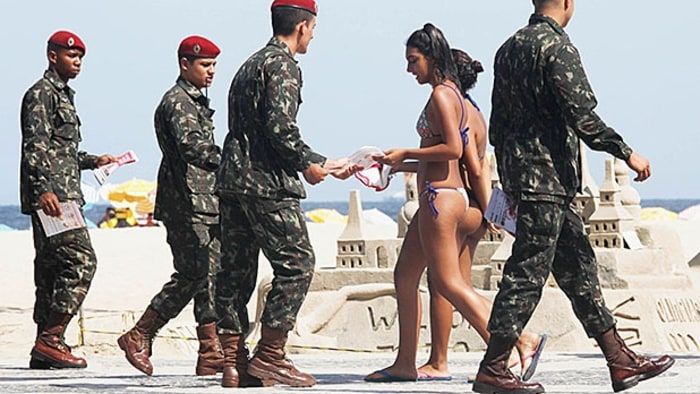Travel and Zika: What You Need to Know
The Zika virus outbreak has prompted CDC travel alerts and speculation that Olympic athletes might not even travel to Rio for the Summer Games. But the problem isn't just in Brazil, Zika has spread to countries in Central America, South America, the Caribbean, and Cape Verde in Africa — most of which are popular destinations for winter travel.
RELATED: Sex and Zika, What You Need to Know
Zika's not a new virus, but its making headlines for the size of the outbreak and possible link (researchers need more data) between Zika and babies born with microcephaly (undersized skulls). Researchers from the CDC also now recognize that in addition to the disease's usual transmission method, the Aedes mosquito, the virus can be spread through sexual contact. If you're planning a getaway and just want to avoid Zika, check for the CDC Zika map. But here's what you need to know if you've already booked a trip, or are considering travel to an affected area.
You Can Probably RelaxMost travelers can probably shrug off any concern: Zika will cause uncomfortable but not dangerous symptoms, such as a rash, fever, headache, red eyes, and joint pains, but little lasting impact — unless you are pregnant, planning to become pregnant, or about to impregnate someone.
Protect Your Travel InvestmentCheck with your airline or travel provider on its policy for cancellations or destination changes. Many airlines are offering refunds for those bound to Zika-affected countries. Some, like American Airlines, require a doctor's note confirming pregnancy, others don't but have a cutoff for changes (for example, Delta with a cutoff of February 29).
Traveler's insurance likewise is spotty. Check the terms of your policy, or better yet, call. The CDC has classified the Zika outbreak as a Level 2 travel alert, which means travelers are advised to practice enhanced cautionary measures, but not to cancel nonessential travel (that's Level 3). Because of this, some travel insurance policies won't reimburse you for your travel.
Go Ahead and Book, the Olympics Are Probably SafeThere are no plans to cancel them, and no word from any athlete who has decided not to participate in the Summer Olympics, slated for August 5 to 21 in Rio de Janeiro, Brazil. It will be winter in the Southern Hemisphere, with average temps in Rio of 80 degrees during the day and 70 at night. While cooler weather usually deters mosquitoes, these temps are still warm and might simply slow them down. If you're worried that by the time you depart Zika will be worse or have spread, consider traveler's insurance with a Cancel For Any Reason (CFAR). Vendors to try include Travel Insurance Services, Travel Guard, and Travel Safe.
Beat the MosquitoesThe CDC describes Aedes, the host mosquito, as an "aggressive daytime biter," but you have several lines of defense. Unfortunately, advice for avoiding mosquitoes also sounds like advice for avoiding warm-weather fun: Wear long pants and long-sleeved shirts, optimally treated with permethrin, a military-grade repellent. Stay inside, especially in air-conditioned rooms. Avoid places with standing water. You can also make sure your bed is surrounded by mosquito netting, that you are using a DEET-based insect repellent, and that you apply it often. There are reports of repellant shortages and price gouging in some places, so pack your own.
